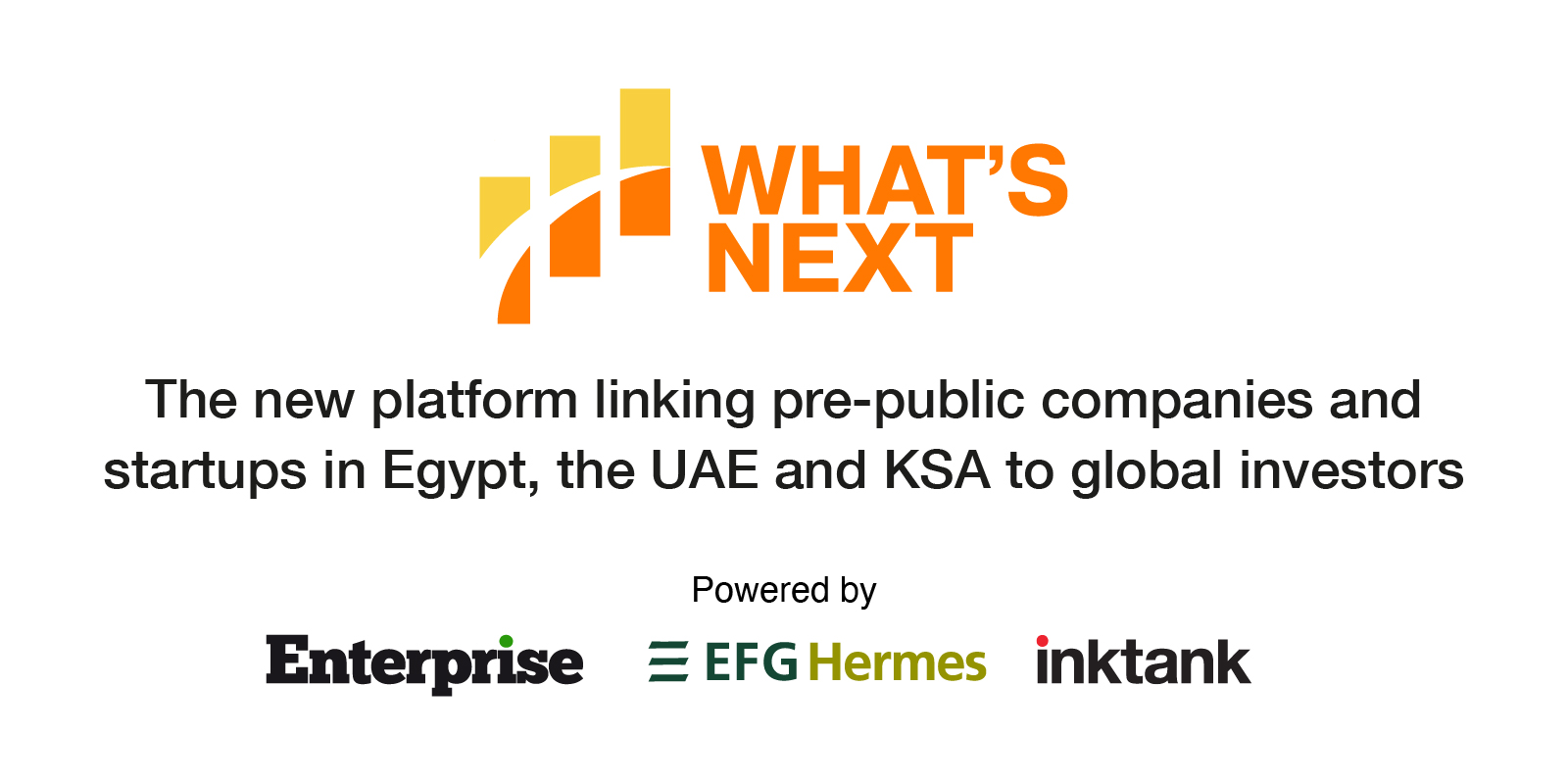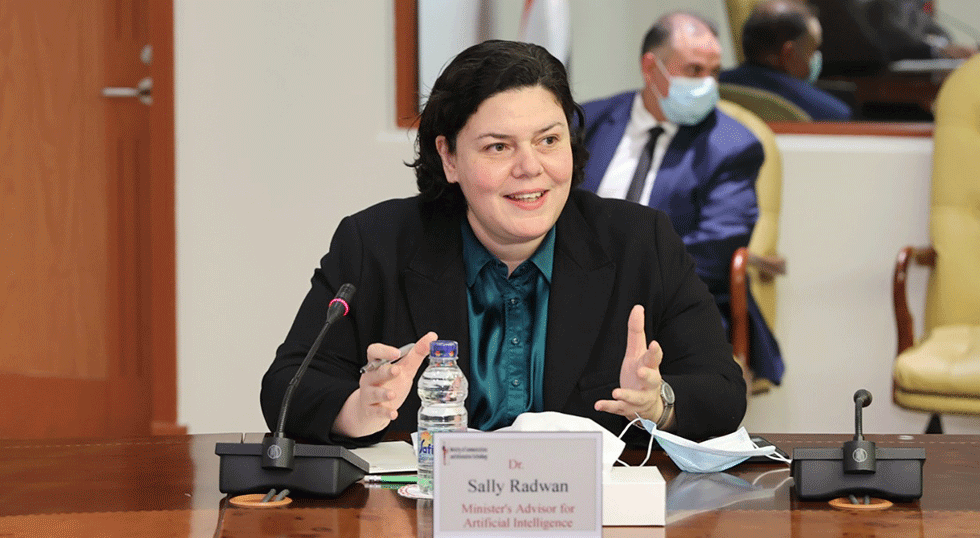How the gov’t plans to grow the AI sector: A sitdown with Comms Ministry AI advisor, Sally Radwan (Part II): Last week, we talked to the CIT Minister advisor on AI Sally ‘Golestan’ Radwan and took a deep-dive into the ministry’s national strategy on the sector. The strategy aims to serve four main pillars, serving government, development, capacity building and international relations. Today, Radwan tells us about the practical applications of the strategy and its development.
A number of projects in agriculture, healthcare and government have already been implemented. The ministry already implemented a few AI applications in the agriculture sector, as well as AI solutions for government bodies. Furthermore, the ministry is opening its resources up to the private sector to help reduce the barrier to entry for AI applications in various sectors, Radwan tells us. More needs to be done, however, on the legislative front in order for wide adoption to take place.
AI applications in agriculture: One project was chosen to be presented at the Paris Peace Forum and supported by a grant from Microsoft, which entails using satellite imagery to identify land plot boundaries in the Nile Delta. Land plots there are very small and therefore, ownership is hard to determine. The project helped with identifying where the plots start and end and what is being planted there, in order to provide irrigation recommendations. This allowed for better water management. The second part of the project helped identify what was planted on these plots. “What we’re working on now is to calculate the amount of irrigation water required for each of those plots,” Radwan says.
Another agritech AI solution aims to become the farmers’ best friend. The Hudhud app, the smart farmer’s assistant, was launched with the Agriculture Ministry. The aim is to help small-hold farmers by giving them proactive advice on their crops via a chatbot, based on Agriculture Ministry announcements, as well as weather notifications. Farmers can ask the chatbot about a variety of issues, such as which crops to plant at which time of year, how to irrigate them, where the prices of vegetables and fruits stand in different markets etc. The chatbot can also help farmers identify pests on their crops and how to fight them.
In healthcare, the CIT Ministry is working on a project about the long-term effect of type 2 diabetes on vision with the Health Ministry. Patients suffering from type 2 diabetes stand the risk of going blind in the long-term; hence, they are advised to check with an eye doctor once a year so that needed interventions can be done in time. However, Egypt has between 10 – 20 mn diabetes patients and a limited number of eye doctors. The deep-learning solution takes a picture of the patient’s eye and analyzes it for early signs of blindness, after which it informs the patient’s doctor treating diabetes, who can then intervene accordingly with medication. So it saves the time of physicians and makes up for the lack of eye doctors. There’s another project that looks at automating cancer radiotherapy treatment, as well as one tackling chronic disease management to reduce the burden on the healthcare sector.
Applications in tourism: The Egypt Post Museum now has two AI-driven apps, which can be used for other museums as well. One is an avatar that chats with the museum visitors, answers their questions and gives them hints on how to best navigate the museum. The other one is a semantic search engine for researchers that helps them understand the relationship between the different displayed artifacts.
Facilitating tax collection and other gov’t functions: Other projects explore applying AI to the tax collection system in partnership with the Finance Ministry. “We are also working with the Justice Ministry on how to use AI to expedite repeated, civil, non-criminal verdicts, like alimony payments for instance,” she says. These take a long time to process in the courthouse, but can be easily automated. There is also a project in the works focusing on a smart correspondence management system for the government, document processing products to accelerate the paper cycle, and smart procurement processes.
Smart cities are also a natural priority: A national strategy for smart cities and how AI can be best utilized in them is also being developed. “The main focus is to engage the AI ecosystem as a whole, so we’re working with TIEC’s eight Creativa Innovation Hubs across Egypt’s university campuses to come up with new creative AI applications in partnership with local startups,” she adds. You can catch up on the nation’s smart cities strategy and the players involved here.
Across the board, public private partnerships are essential: They are necessary on at least a project-basis. It is essential to have the government mandate but also to have the innovation, product-centered perspective and sense of urgency found in the private sector. The projects are usually built on a trilateral partnership between the beneficiary who wants to adopt AI, the company that is building the application, and the government.
Egypt is also building an online AI center of excellence for Egypt, to facilitate building AI projects in an efficient, repeatable, and cost-effective way. “When we create a project, we want to make sure that its components are reusable and scalable for others,” Radwan tells us. These components are tested, certified and trusted and having them available on a platform enables the industry and builds an ecosystem.
Startups and researchers and academics can use the platform to build applications in an easy, cost-effective and quick way. “It will include details on how we liaise with the beneficiaries of our different projects and how we involve technology partners to encourage the private sector,” she explains. Egypt signed a twinning agreement with Singapore to replicate the AI Center of Excellence they have. The aim is to encourage AI adoption in the government and private sector. This includes an assessment tool to determine the AI readiness of companies.
The ministry future plan is to reduce the barriers to private sector adoption by derisking investments: A big barrier to AI adoption amongst the private sector is risk. “We try to derisk the process by having the Center of Excellence help them build a minimal viable model of what they want to build,” Radwan says. The Center of Excellence helps identify the problem a beneficiary wants to solve and builds a prototype, or minimal viable model, of the AI application. Once the prototyping is done, the beneficiary starts investing to implement the full-fledged solution. So there is no risk in the primary phase of the project.
More still needs to be done for widespread adoption: Legislation still needs to be created to encourage investment in AI, providing incentives to companies to enter the space, she tells us. Laws need to be in the books to provide greater support to startups, while building bridges with academia and having a pipeline of applied research for applications on-ground. Mechanisms need to be in place for importing technology, reducing bureaucracy, accelerating government involvement in high-tech projects, and relying more heavily on pilot projects. An Egyptian charter for responsible AI is also expected to be published in summer 2022. The charter includes guiding principles around ethics and responsible development, as well as technical guidelines, with the aim of enabling the local ecosystem. “The process is ongoing, but it will take some time,” Radwan concludes.
Your top stories on future trends for the week:
- Three of Egypt’s state-owned banks are investing in a new USD 85 mn fintech fund launched by Dubai-based VC Global Ventures, dubbed Nclude.
- Lebanon-based beauty e-commerce platforms SohatiCare and Loolia Closet have expanded to Egypt.
- Sequence Ventures is looking to invest EGP 150 mn in 10 tech companies this year via its Egypt Deep-Tech fund. The fund plans to reach its first close of EGP 150 mn after Ramadan.
- Catalyst Private Equity has launched an EGP 1 bn impact investment fund that will target Egyptian SMEs.

